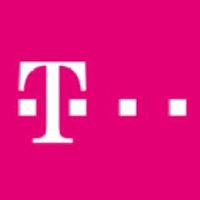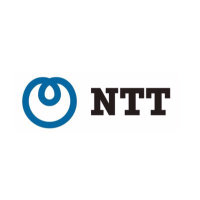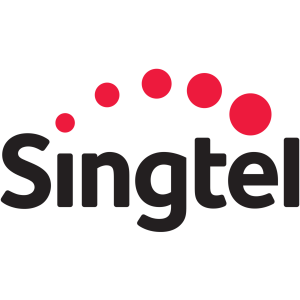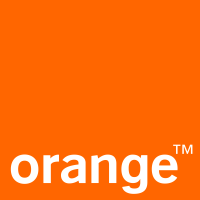
Magyar Telekom Tavkozlesi Nyrt
OTC:MYTAY

Profitability Summary
Magyar Telekom Tavkozlesi Nyrt's profitability score is hidden . We take all the information about a company's profitability (such as its margins, capital efficiency, free cash flow generating ability, and more) and consolidate it into one single number - the profitability score. The higher the profitability score, the more profitable the company is.
Profitability Score
We take all the information about a company's profitability (such as its margins, capital efficiency, free cash flow generating ability, and more) and consolidate it into one single number - the profitability score. The higher the profitability score, the more profitable the company is.
We take all the information about a company's profitability (such as its margins, capital efficiency, free cash flow generating ability, and more) and consolidate it into one single number - the profitability score. The higher the profitability score, the more profitable the company is.
Profitability Score
Margins
Profit margins represent what percentage of sales has turned into profits. Simply put, the percentage figure indicates how many cents of profit the company has generated for each dollar of sale.
Profit margins help investors assess if a company's management is generating enough profit from its sales and whether operating costs and overhead costs are being contained.
Earnings Waterfall
Magyar Telekom Tavkozlesi Nyrt

|
Revenue
|
940.2B
HUF
|
|
Cost of Revenue
|
-379B
HUF
|
|
Gross Profit
|
561.2B
HUF
|
|
Operating Expenses
|
-351.6B
HUF
|
|
Operating Income
|
209.6B
HUF
|
|
Other Expenses
|
-64.8B
HUF
|
|
Net Income
|
144.8B
HUF
|
Margins Comparison
Magyar Telekom Tavkozlesi Nyrt Competitors

| Country | Company | Market Cap |
Gross Margin |
Operating Margin |
Net Margin |
||
|---|---|---|---|---|---|---|---|
| HU |

|
Magyar Telekom Tavkozlesi Nyrt
OTC:MYTAY
|
4.4B USD |
60%
|
22%
|
15%
|
|
| US |

|
AT&T Inc
NYSE:T
|
195.1B USD |
60%
|
20%
|
9%
|
|
| DE |

|
Deutsche Telekom AG
XETRA:DTE
|
161.1B EUR |
61%
|
22%
|
10%
|
|
| US |

|
Verizon Communications Inc
NYSE:VZ
|
179.8B USD |
60%
|
24%
|
13%
|
|
| CN |

|
China Telecom Corp Ltd
SSE:601728
|
708.3B CNY |
29%
|
7%
|
6%
|
|
| JP |

|
Nippon Telegraph and Telephone Corp
TSE:9432
|
12.5T JPY |
0%
|
14%
|
8%
|
|
| SA |

|
Saudi Telecom Company SJSC
SAU:7010
|
189B SAR |
41%
|
19%
|
33%
|
|
| SG |

|
Singapore Telecommunications Ltd
SGX:Z74
|
61.9B SGD |
100%
|
9%
|
-1%
|
|
| FR |

|
Orange SA
PAR:ORA
|
33.7B EUR |
61%
|
15%
|
5%
|
|
| HK |

|
China Unicom Hong Kong Ltd
HKEX:762
|
260.4B HKD |
70%
|
5%
|
6%
|
|
| CH |

|
Swisscom AG
SIX:SCMN
|
27.8B CHF |
79%
|
20%
|
14%
|
Return on Capital
Return on capital ratios give a sense of how well a company is using its capital (equity, assets, capital employed, etc.) to generate profits (operating income, net income, etc.). In simple words, these ratios show how much income is generated for each dollar of capital invested.


Return on Capital Comparison
Magyar Telekom Tavkozlesi Nyrt Competitors

| Country | Company | Market Cap | ROE | ROA | ROCE | ROIC | ||
|---|---|---|---|---|---|---|---|---|
| HU |

|
Magyar Telekom Tavkozlesi Nyrt
OTC:MYTAY
|
4.4B USD |
19%
|
10%
|
18%
|
14%
|
|
| US |

|
AT&T Inc
NYSE:T
|
195.1B USD |
10%
|
3%
|
7%
|
5%
|
|
| DE |

|
Deutsche Telekom AG
XETRA:DTE
|
161.1B EUR |
19%
|
4%
|
10%
|
7%
|
|
| US |

|
Verizon Communications Inc
NYSE:VZ
|
179.8B USD |
18%
|
5%
|
10%
|
7%
|
|
| CN |

|
China Telecom Corp Ltd
SSE:601728
|
708.3B CNY |
7%
|
4%
|
7%
|
5%
|
|
| JP |

|
Nippon Telegraph and Telephone Corp
TSE:9432
|
12.5T JPY |
12%
|
4%
|
10%
|
5%
|
|
| SA |

|
Saudi Telecom Company SJSC
SAU:7010
|
189B SAR |
29%
|
15%
|
12%
|
14%
|
|
| SG |

|
Singapore Telecommunications Ltd
SGX:Z74
|
61.9B SGD |
0%
|
0%
|
3%
|
-6%
|
|
| FR |

|
Orange SA
PAR:ORA
|
33.7B EUR |
7%
|
2%
|
8%
|
5%
|
|
| HK |

|
China Unicom Hong Kong Ltd
HKEX:762
|
260.4B HKD |
11%
|
6%
|
8%
|
7%
|
|
| CH |

|
Swisscom AG
SIX:SCMN
|
27.8B CHF |
13%
|
5%
|
9%
|
6%
|
Free Cash Flow
Free cash flow (FCF) is the money a company has left over after paying its operating expenses and capital expenditures. The more free cash flow a company has, the more it can allocate to dividends, paying down debt, and growth opportunities.
If a company has a decreasing free cash flow, that is not necessarily bad if the company is investing in its growth.





















































 You don't have any saved screeners yet
You don't have any saved screeners yet
